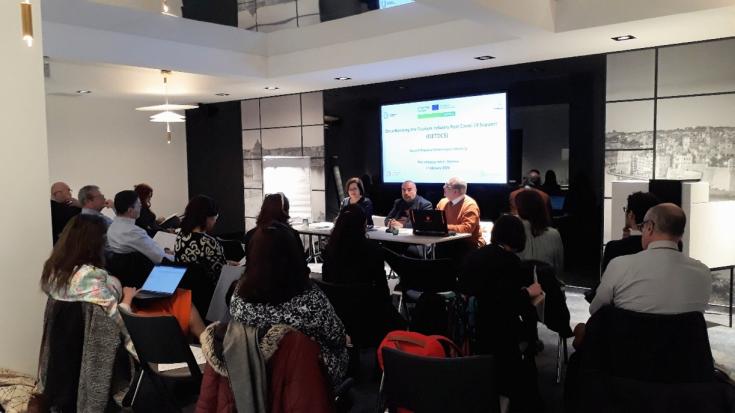Findings from Malta's DETOCS Eisenhower Matrix Analysis

During Malta's second regional stakeholders' meeting of the DETOCS project, held on 7 February 2024 at in Valletta, Malta, the 94-point SWOT analysis conducted previously underwent an Eisenhower Matrix analysis for the decarbonisation of Malta's tourism sector.
In preparation for the second regional stakeholders' meeting, a detailed online questionnaire was shared among stakeholders to identify the level of importance, urgency and feasibility of all the 94 points previously identified through the SWOT (strengths, weaknesses, opportunities, threats) analysis. Two online sessions were organised on 29 September 2023 and 10 January 2024 in order to answer any queries and support stakeholders in this important task. The goal of the sessions were to identify the priority areas that the project should focus its efforts on for the next two years.
If fostered, the opportunities can potentially become examples of good practice, while the weaknesses can be addressed through changes in policy or other appropriate actions. Below are the results from the Eisenhower Matrix analysis.
Identified high priority opportunities (En= Environmental, L=Legal, Ec=Economic)
|
OPPORTUNITY |
|
|
EnO6 |
Transitioning towards better waste separation, higher recycling rates and lower energy consumption to treat the generated waste in the hospitality sector. |
|
LO4 |
Maximise the appropriate implementation of existing building regulations that promote sustainability. |
|
LO8 |
Introduction of timeframes for hotels and tourist establishment to reach more efficient energy performance levels by specified deadlines. |
|
LO6 |
Strengthening the requirements, application, and quality control of the EPC process is crucial to ensure its role in fostering sustainable, energy-efficient practices in the industry. This is addressed through independent control systems performed by the Building and Construction Authority. |
|
EcO5 |
Conducting a Cost-Benefit Analysis (CBA) of the tourism industry could provide valuable insights into the economic feasibility and potential impacts of decarbonisation efforts and can be viewed as an opportunity to inform and refine policy and decision- making. |
|
EnO5 |
Confront the high-waste nature of the tourism industry, seeking strategies to reduce waste generation and promote recycling and other sustainable practices, essential for the sector's decarbonisation. |
Identified high priority weaknesses (S= Social, P=Political, En= Environmental)
|
ACRONYM |
WEAKNESS |
|
SW2 |
The high population density in relation to available resources and infrastructure could pose a challenge to decarbonisation efforts within the tourism sector and may lead to decreased quality of life for residents, triggering potential resistance to sustainable tourism initiatives. |
|
PW2 |
Synchronisation of policies falling under the responsibility of different ministries and authorities is not always evident and effective. For example, increased bed capacity is supported, while no sufficient support is provided to shift to green energy to counterbalance the increase in tourists. |
|
EnW4 |
Infrastructural bottlenecks such as traffic, sewage, power, water, and waste management could hinder the implementation of sustainable practices in the tourism sector. |
|
PW3 |
There is a noticeable gap in comprehensive data regarding Malta’s current standing in decarbonisation efforts, in terms of hotels and major contributors within the tourism sector. The absence of a defined baseline for Malta hinders the establishment of clear and measurable decarbonisation targets. |
|
PW1 |
Insufficient corporate support to accelerate the implementation of policy goals to reduce carbon emissions and to achieve decarbonisation. |
|
EnW5 |
Lack of public transport options (eg. Some routes not served, frequency of bus serving the route) leads to increase the use of individual private or rented cars or taxis for tourists visiting the island contributing to increasing congestion and emissions |
DETOCS project partners and stakeholders will convene on 15-16 May 2024 in Malta for the third International Exchange of Experience Event of the project to discuss the identified key priorities for each region, share experiences and elaborate on the best strategies to address them.